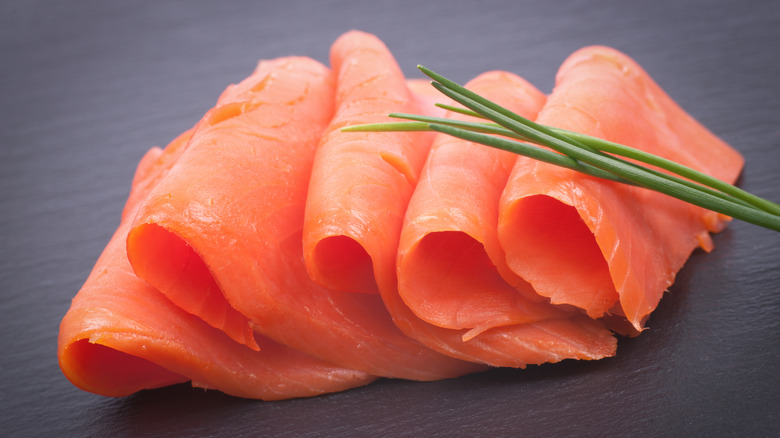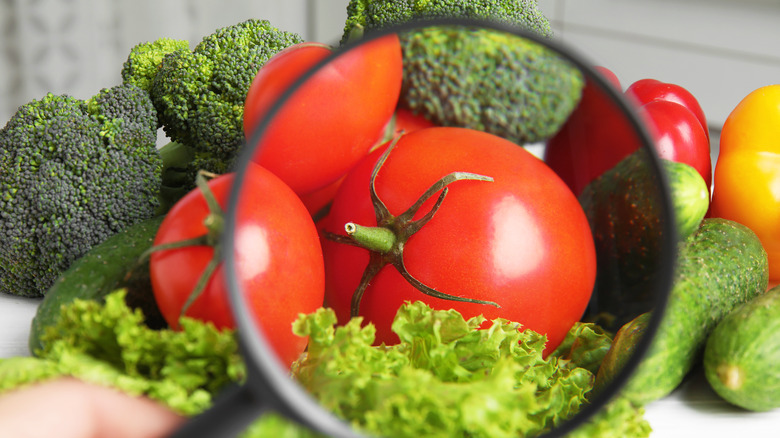Giant Food's Smoked Salmon Recall: The Listeria Risks You Should Know About
According to a recall statement from the U.S. Food & Drug Administration (FDA), Seven Seas International USA, LLC recalled 540 boxes of its refrigerated Giant Food Private Label Wild Caught Alaskan Sockeye Smoked Salmon on November 8, 2022. The products of concern are 4-ounce packages with a UPC code 68826715832 and a Lot number R4132 shown on the product's front plastic sleeve. The contaminated items were distributed in Virginia, Delaware, Maryland, and Washington D.C., with the contamination being found by Maryland's Department of Health during routine testing. Seven Seas International USA, LLC can be reached at 1-888-627-5668 from 9 a.m. to 5 p.m. EST for consumers with questions or concerns about the recall.
The salmon product was recalled due to a possible Listeria monocytogenes contamination. As of November 8, 2022, there have not been any reported illnesses from the contaminated products, however, the FDA strongly urges consumers who have a contaminated product to either return the item for a refund or throw the item away. Listeria is especially harmful to elderly people, young children, pregnant women, and people with weak immune systems. While symptoms may vary from person to person, there are certain risks you should know about.
Listeriosis is a serious foodborne illness
According to the Centers for Disease Control and Prevention (CDC), around 1,600 people in the United States every year fall ill with listeriosis, which is the infection caused by Listeria monocytogenes. The most common way people get sick from listeriosis is by eating food that's been contaminated by the germ. A majority of people are hospitalized due to the illness, and it's typically remedied by antibiotics. If anyone experiences a fever, muscle aches, and fatigue after consuming food that's potentially contaminated with Listeria monocytogenes, the CDC advises them to visit their doctor. Symptoms may begin on the day the individual is exposed to the bacteria or take as long as 70 days. Other symptoms may include confusion, convulsions, and loss of balance.
In severe cases, listeriosis may also cause bloodstream or brain infections and may spread to joints, bones, and the abdomen and chest. It's important to be aware of any foods that are more likely to be affected by Listeria monocytogenes, including celery, cantaloupes, raw sprouts, soft cheeses, smoked seafood, cold deli meats and hot dogs, and unpasteurized, raw milk, per the CDC. Queso fresco and other Mexican-style cheeses that are made with pasteurized milk are also risky foods (via CDC). Be sure to keep your refrigerator at or below 40 degrees Fahrenheit and freezer at or below 0 degrees Fahrenheit, heat hot dogs and deli meats thoroughly before consuming, and place leftovers in the fridge as soon as possible.

